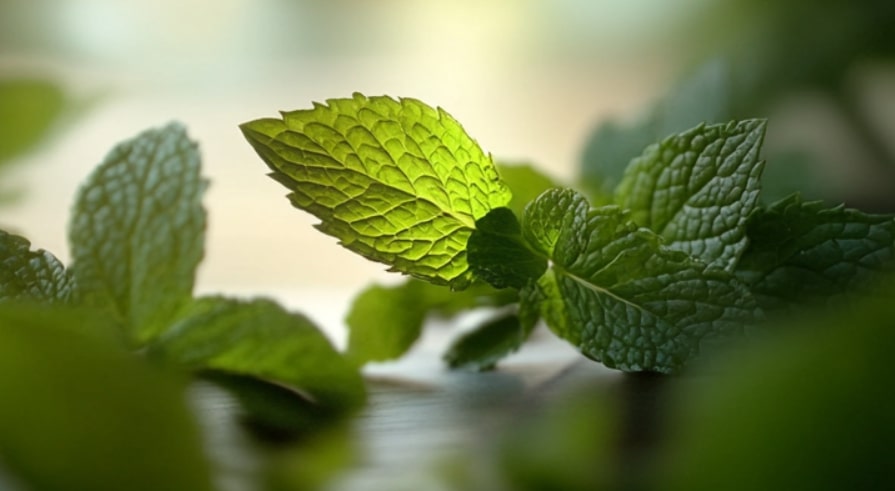Peppermint tea, a flavorful and aromatic beverage, is derived from the cross between spearmint and watermint. Known for its refreshing taste and soothing properties, peppermint tea has captivated tea lovers worldwide.
Beyond its delightful flavor, it has been revered for centuries as a natural remedy for various ailments. Its popularity is not a recent trend but a continuation of traditional practices that span cultures and continents.
In Europe, it has been cherished for alleviating indigestion and enhancing energy levels, while in India, it is a household remedy for colds, coughs, and digestive discomforts. Persian folklore even associates peppermint with relieving toothaches.
Such widespread use highlights its enduring value as more than just a refreshing drink. Packed with essential oils, antioxidants, and flavonoids, peppermint tea offers a wide range of benefits that can support overall health.
This article explores its myriad benefits, side effects, and the best ways to brew this time-tested tea, helping you discover why it deserves a place in your daily routine.
Health Benefits of Peppermint Tea
Packed with menthol, antioxidants, and flavonoids, it supports digestion, immunity, and overall well-being.
Soothes Digestive Issues

Improves digestion by relaxing muscles in the gastrointestinal tract.
- Helps alleviate irritable bowel syndrome (IBS).
- Reduces bloating and gas after meals.
- Enhances bile flow, aiding the digestion of fats.
A calm stomach leads to better digestion, and peppermint tea plays a key role in supporting gut health. The natural compounds in peppermint relax the muscles of the gastrointestinal tract, making it easier for food to move smoothly. This tea has been used for generations to ease bloating, discomfort, and cramping.
Drinking a warm cup after meals can prevent gas buildup and improve digestion. Many people with irritable bowel syndrome (IBS) find relief because peppermint helps reduce spasms in the intestines. Its ability to enhance bile flow also supports the digestion of fats, making heavy meals easier to tolerate. A simple habit like sipping peppermint tea can go a long way in maintaining digestive comfort.
Relieves Stomach Upset
Menthol naturally eases discomfort in the stomach.
- Relieves cramping and inflammation.
- Reduces the feeling of fullness and heaviness.
- Calms nausea and promotes a settled stomach.
A queasy stomach can make daily activities uncomfortable, but peppermint tea offers a natural way to settle digestive distress. The menthol found in peppermint has soothing properties that help relax stomach muscles, reducing cramping and inflammation.
Freshens Breath Naturally

The antimicrobial properties combat bad breath effectively.
- Neutralizes odor-causing bacteria.
- Acts as a natural mouth refresher after meals.
- Improves overall oral hygiene with regular use.
A fresh mouth boosts confidence, and peppermint tea naturally helps eliminate bad breath. The antimicrobial properties of peppermint fight bacteria that cause odor, making it an excellent alternative to sugary breath mints or artificial mouthwashes.
Fights Cold and Flu Symptoms
Menthol content helps relieve respiratory discomfort.
- Opens blocked nasal passages and soothes sore throats.
- Reduces chest congestion caused by colds.
- Supports the immune system with antioxidants.
Congestion, sore throats, and coughs can make even the simplest tasks difficult. Peppermint tea provides natural relief by helping to open nasal passages and soothe respiratory discomfort. The menthol content acts as a decongestant, making breathing easier and reducing the feeling of heaviness in the chest.
A warm cup can also help break up mucus, making it easier to clear the airways. The antioxidants found in peppermint support the immune system, helping the body recover more efficiently.
Promotes Healthy Skin and Hair
The anti-inflammatory and antibacterial properties enhance skin and scalp health. Clear skin and a healthy scalp start from within, and peppermint tea offers benefits that go beyond hydration. The anti-inflammatory and antibacterial properties help reduce redness, fight acne-causing bacteria, and prevent clogged pores. A simple addition to a skincare routine, peppermint tea works from the inside out to maintain a clearer complexion.
For scalp health, peppermint can be used as a rinse to soothe itchiness and reduce dandruff. The cooling sensation refreshes the scalp, making hair feel lighter and healthier. Incorporating peppermint tea into a wellness routine can support both skin and hair in a natural and gentle way.
Supports Weight Loss Goals

Aids in managing weight by curbing appetite and improving metabolism.
Since peppermint tea contains no calories, it serves as a guilt-free alternative to sugary drinks. It also supports digestion, helping the body process fats more efficiently. For those looking for a natural way to complement their weight loss efforts, peppermint tea provides a simple and effective option.
Eases Menstrual Cramps
The muscle-relaxing properties of menthol provide relief for menstrual pain. Many people find that sipping warm peppermint tea provides natural relief without relying on painkillers.
Beyond cramp relief, peppermint tea also helps reduce bloating and discomfort that often accompany menstrual cycles. Its calming effects promote relaxation, making it easier to manage stress and tension. A warm cup can bring comfort during difficult days, offering a gentle and effective way to support overall well-being.
How to Brew the Perfect Cup of Peppermint Tea
Brewing it properly ensures you get the maximum benefits and flavor.
Below are simple recipes to create a perfect cup, with variations to suit your preferences.
Recipe for Plain Peppermint Tea
A simple method to brew a basic yet flavorful cup of tea.
- Boil one cup of water.
- Add 5–7 fresh or dried peppermint leaves.
- Cover and steep for 3–5 minutes to extract the essential oils.
- Strain the tea if desired and enjoy it warm.
Recipe for Peppermint Ginger Tea
Combining ginger with peppermint creates a more robust and health-boosting tea.
- Boil one cup of water with 1 teaspoon of grated ginger and 1 teaspoon of dried peppermint leaves.
- Add 3–4 fresh peppermint leaves for enhanced flavor.
- Simmer for 3–5 minutes and strain before serving.
How Often Should You Drink Peppermint Tea?
Peppermint tea is safe and versatile, making it suitable for regular consumption. However, moderation is key to ensure optimal benefits without any side effects.
- Drinking 1–2 cups daily is ideal for most individuals.
- As this tea is caffeine-free, it can be consumed at any time of day, even before bed.
- Avoid excessive intake, as overconsumption may lead to unwanted effects, particularly for those with specific health conditions.
Potential Side Effects

Peppermint tea is generally safe but may not suit everyone. Some individuals should limit or avoid its consumption due to its effects on specific conditions.
Individuals with Acid Reflux
May worsen acid reflux or GERD symptoms.
- The menthol relaxes the lower esophageal sphincter, allowing stomach acid to flow back into the esophagus.
- Avoid if you frequently experience heartburn or similar discomforts.
Pregnant and Breastfeeding Women
Should be consumed cautiously during pregnancy or breastfeeding.
- Excessive intake may trigger uterine contractions, particularly in the first trimester.
- Peppermint essence might cause breathing issues in infants when consumed by breastfeeding mothers.
Interactions with Medications
May interfere with certain medications.
- Consult a healthcare professional if you are on medication for chronic conditions.
- Avoid if your doctor advises against it due to possible interactions.
FAQs
Is Peppermint Tea a Stimulant?
Peppermint tea is caffeine-free, making it a calming option rather than a stimulant.
- It enhances mental focus and alertness due to its refreshing aroma and antioxidants.
- Improves memory retention and supports cognitive functions without disrupting sleep.
Does Peppermint Tea Help with Belly Fat?
While peppermint tea does not target belly fat specifically, it aids overall weight management.
- Reduces appetite and curbs sugar cravings.
- Increases metabolism, especially when consumed before workouts.
Is Peppermint Tea Safe to Drink?
Peppermint tea is natural and free of chemicals, making it safe for most people.
- Brew tea using fresh or dried leaves to ensure quality and avoid artificial flavoring.
- Consume in moderation to avoid adverse effects in specific conditions.
How Long Does Peppermint Tea Take to Work?
The effects of peppermint tea vary based on individual responses.
- Relief from digestive issues like bloating or heartburn typically occurs within 40–60 minutes.
- Regular consumption over time enhances overall benefits, including digestion and immunity.
Final Thoughts
Peppermint tea is an all-natural solution for various health concerns, offering both therapeutic and refreshing qualities. Its benefits extend to digestion, weight management, immunity, and even skin and hair health. While safe for most individuals, those with specific health conditions or sensitivities should consume it cautiously.




